About this course
Study fundamental engineering and scientific principles at postgraduate level on this CIWEM accredited MSc in Water, Energy and the Environment from LJMU.
- Study a curriculum informed by the School's close partnerships with industry and professional practice expertise
- Follow a curriculum accredited by the Chartered Institution of Water and Environmental Management (CIWEM)
- Benefit from the internationally acclaimed research of the Built Environment and Sustainable Technologies Research Centre (BEST)
- Follow in the footsteps of graduates who have won CIWEM sponsored national prizes for excellence and achievement
This Masters programme is designed to help you become a competent environmental engineer and manager. It will give you a sound knowledge of fundamental engineering and scientific principles, together with the ability to apply these to design, construction, assessment, analysis, operation and management.
The programme has two principal aims. First, to equip you with the necessary competencies and skills to analyse, assess and manage all principal aspects within the fields of water, energy and the environment. Second, to give you the professional skills, knowledge and experience to both meet the current demands of industry and influence possible future trends.
As a student on this programme you will acquire the necessary techniques to analyse and solve environmental problems. You will critically evaluate the environmental impact of human activities and demonstrate knowledge of national and international environmental policy and regulation. In addition, you will gain the ability to critically evaluate design and operations and use appropriate mathematical models for environmental modelling and assessment.
Course modules
Discover the building blocks of your programme
Further guidance on modules
Modules are designated core or optional in accordance with professional body requirements, as applicable, and LJMU’s Academic Framework Regulations. Whilst you are required to study core modules, optional modules provide you with an element of choice. Their availability may vary and will be subject to meeting minimum student numbers.
Where changes to modules are necessary these will be communicated as appropriate.
Core modules
Research Project
60 credits
60 credits
This module will develop and test your ability to prepare a dissertation based on a study in appropriate depth, of a subject of some significance in relation to your own discipline within the built environment.
Research Methodology
10 credits
10 credits
This module will provide you with an understanding of the academic research process understanding the differing techniques, strategies and methods used to undertake research in the built environment.
Water and Wastewater Treatment
20 credits
20 credits
This module critically assesses current practices in water and wastewater treatment, focusing on the design and operation of treatment plants. It also contextualizes water and wastewater treatment within the broader management of public water supply and sanitation.
Environmental Systems
20 credits
20 credits
This module aims to foster an understanding of environmental systems and their susceptibility to human activity. It focuses on ecosystems, resources, and human impact on the environment, equipping students to make informed technical and management decisions based on this knowledge. The module delves into the environmental background, its complexities, and the quantitative assessment of human impact, encompassing both resource issues and pollutant effects.
Sustainable Infrastructure
20 credits
20 credits
This module will help you develop an understanding of the operation, design and management of infrastructure in both the Developing World and the Developed World. From this you will develop the capability for critical assessment of the sustainability of infrastructure in a wide variety of situations.
Energy and Carbon Management
20 credits
20 credits
This module develops students' ability to undertake a comprehensive review of energy supply, use and efficiency measures, in order to make informed decisions on energy use in the construction industry and business.
River Basin Management
10 credits
10 credits
This module aims to offer a comprehensive understanding of river basin management in accordance with the EU Water Framework Directive (WFD). It delves into the WFD, the establishment of monitoring programs for water bodies, the formulation of "programs of measures," and the creation of River Basin Management Plans. Furthermore, it evaluates the sustainable utilization of water and critically assesses advancements in sustainable use measures. The module also covers contemporary developments in pollution control and the process of granting permissions for the discharge of contaminated water and water impoundment.
Collaborative BIM Project
20 credits
20 credits
The module is an opportunity for students to follow BIM protocols and practice in a collaborative multidisciplinary project team to achieve project success.
Your Learning Experience
An insight into teaching on your course
Teaching methods
You will be taught via lectures, seminars and problem solving sessions each week.
Applied learning
The Department of Civil Engineering partners many local, national and international organisations. It enjoys strong business relationships, predominantly through the DTI Knowledge Transfer Partnership Scheme.
During your studies you will have the opportunity to carry out fieldwork, site visits and laboratory sessions to develop your practical skills. Activities such as attending professional body talks and visits are also part of the learning process.
How learning is monitored on your programme
To cater for the wide-ranging content of our courses and the varied learning preferences of our students, we offer a range of assessment methods on each programme.
Where you will study
What you can expect from your School
The Department of Civil Engineering is situated in the Byrom Street complex of LJMU 's City Campus. Here you 'll find high quality lecture theatres, meeting and seminar rooms plus social spaces and a large café. The Avril Robarts Library is just minutes away on Tithebarn Street.
Course tutors

Dr Ed Loffill
- Programme Leader
My teaching role is in the civil engineering suite of programs where I mainly teach soil mechanics, geotechnics and project modules on HNC and undergraduate programs along with environmental subjects on the Water, Energy and the Environment MSc program.My PhD research was a collaboration between industrial partners (Hydro International Plc and United Utilities Plc) focussed on assessment and improvement of a tertiary wastewater filtration process. This project involved combining the findings from laboratory (university based) and practical based fieldwork (United Utilities field site) into a numerical dataset from which I developed a predictive mathematical model of efficiency for the process. The research led to a number of publications and speaking at a number of conferences and this research is ongoing with several new PhD students continuing this research line where I am actively involved in supervising this research.
Career paths
Further your career prospects
LJMU has an excellent employability record with 96% (HESA 2018) of our postgraduates in work or further study six months after graduation. Our applied learning techniques and strong industry connections ensure our students are fully prepared for the workplace on graduation and understand how to apply their knowledge in a real world context.
Common roles of graduates on this programme include: Civil Engineer, Project Coordinator, Project Manager, Regulator Analyst and Surveyor, primarily at United Utilities and also at The Environment Partnership.
Professional accreditation/links
The accrediting body for this degree is the Joint Board of Moderators for the Institution of Civil Engineers, Institution of Structural Engineers, Institute of Highway Engineers, and the Chartered Institution of Highways and Transportation.
This degree is accredited as fully satisfying the educational base for a Chartered Engineer (CEng).
Visit our website for further information.
Ultimately, with relevant work experience and a masters-level degree, the degree can lead to the professional qualification of Chartered Engineer (CEng) and the equivalent European Qualification of EurIng.
This programme is also accredited by IStructE.
The degree also is accredited by the JBM but as a non-technical MSc. It therefore could provide the educational base for CEng but only with a JBM accredited Engineering undergraduate degree.

Fees and funding
Tuition Fees:
Fees
The fees quoted at the top of this page cover registration, tuition, supervision, assessment and examinations as well as:
- library membership with access to printed, multimedia and digital resources
- access to programme-appropriate software
- library and student IT support
- free on-campus wifi via eduroam
Additional costs
Although not all of the following are compulsory/relevant, you should keep in mind the costs of:
- accommodation and living expenditure
- books (should you wish to have your own copies)
- printing, photocopying and stationery
- PC/laptop (should you prefer to purchase your own for independent study and online learning activities)
- mobile phone/tablet (to access online services)
- field trips (travel and activity costs)
- placements (travel expenses and living costs)
- student visas (international students only)
- study abroad opportunities (travel costs, accommodation, visas and immunisations)
- academic conferences (travel costs)
- professional-body membership
- graduation (gown hire etc)
Funding
There are many ways to fund postgraduate study for home and international students. From loans to International Scholarships and subject-specific funding, you’ll find all of the information you need on our specialist postgraduate funding pages.
Please be aware that the UK’s departure from the EU may affect your tuition fees. Learn more about your fee status and which tuition fees are relevant to you.
- International fee:
- £18,250
International Scholarships and payment plans
Liverpool John Moores University is committed to supporting international students by providing a range of scholarships and flexible payment plans to help students manage their tuition fees.
Scholarships
LJMU provides a variety of scholarships to support international students. Scholarships are available to self-funded students who have accepted their offer and met all the conditions outlined in their offer letter. Students must also demonstrate that they can cover living costs, travel, and other expenses associated to studying at the university. Postgraduate scholarships include tuition fee reductions and are often offered in partnership with external funding organisations.
All self-funded international students are eligible for an automatic scholarship worth up to £4,000. For more details and to view our full list of scholarships, visit the international scholarship webpages.
Deposit
All students must pay a £5,000 deposit before they can receive their CAS letter.
For more information view our deposit page.
Tuition Fee Payment Plan
After paying their £5,000 deposit, students have the option to pay their fees in full or in three equal instalments minus any internal scholarships and discounts. There are two payment options available for international students. You can either pay your tuition fees in full before enrolment or opt for a payment plan. With the payment plan, you can pay your fees in three instalments after making your £5,000 deposit. The first instalment is due before enrolment.
All payments should be made through Flywire. Full details can be found in the How to Pay Guide.
Early Bird Tuition Fee discount
We are excited to introduce a £500 Early Payment Discount to all self-funded international students. Eligible self-funded students who pay their fees by the required deadlines will get a discount which will be automatically deducted from the 1st year of tuition fees.
To see the required deadlines please visit the webpage
Entry requirements
You will need:
Qualification requirements
Undergraduate degree
- a minimum 2:2 in an appropriate subject
Alternative qualifications considered
-
a professional qualification with considerable relevant work experience
Further information
- Extra Requirements
-
RPL
-
RPL is accepted on this programme
-
International requirements
IELTS
-
IELTS English language requirement: 6.5 (minimum 5.5 in each component)
How to apply
Securing your place at LJMU
To apply for this programme, you are required to complete an LJMU online application form. You will need to provide details of previous qualifications and a personal statement outlining why you wish to study this programme.
Your student experience
There's so much more to university than just studying for a degree.
Talk to our students
Connect with a current LJMU student through Unibuddy for insights and advice on university life, courses, and more.
See what our students are saying
At LJMU we want you to know you’re making the right choice by studying with us. You can see what our students are saying about their experience with us through their reviews on the following websites:
Related Links
News and views
Browse through the latest stories and updates from the University and beyond

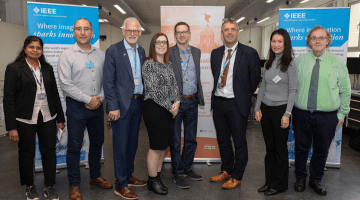
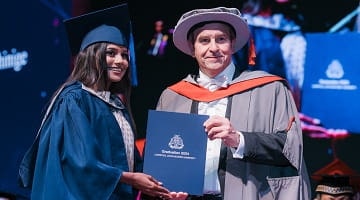
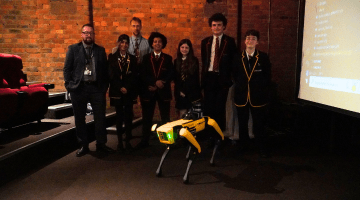
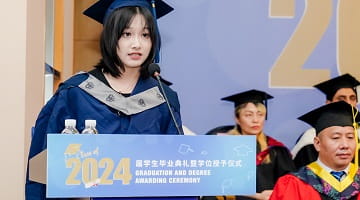

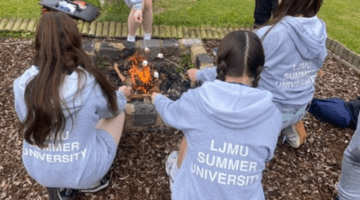


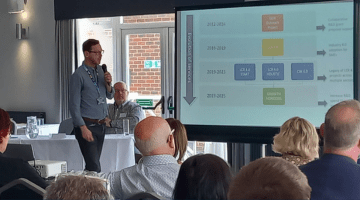
The University reserves the right to withdraw or make alterations to a course and facilities if necessary; this may be because such changes are deemed to be beneficial to students, are minor in nature and unlikely to impact negatively upon students or become necessary due to circumstances beyond the control of the University. Where this does happen, the University operates a policy of consultation, advice and support to all enrolled students affected by the proposed change to their course or module.








